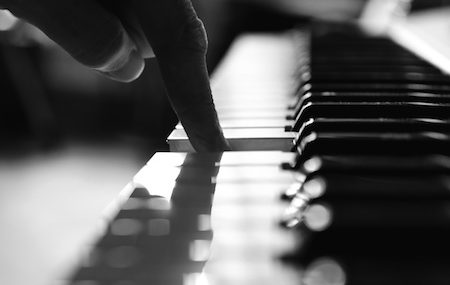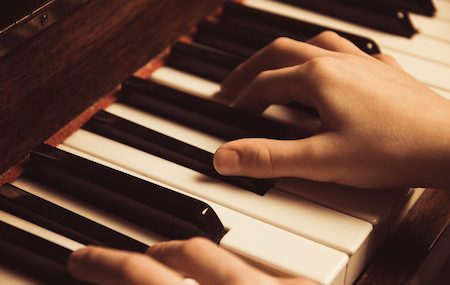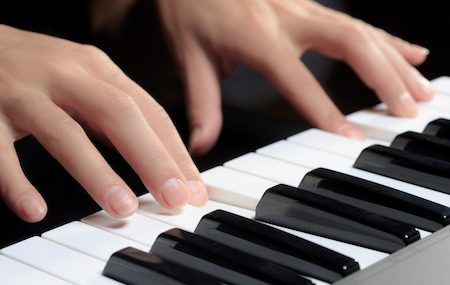How do you sit and play the piano? That might sound like a funny question. To most people, the answer would be a simple – pull out the bench, sit down, and start to play.
In theory, that’s correct. But that’s like telling an office worker to pull out a chair and sit down at a computer and type, expecting they will automatically do it correctly.
If you do it incorrectly, you’ll pay the price. You’ll notice it in your neck, back, arms, and hands almost immediately.
Yes, there is a right piano posture. Here’s what you need to know.
Sit correctly
Just like you can’t slouch at the computer, sitting straight while you play piano is important too. Place the bench away from the piano, sitting comfortably at the front half of the bench. Your arms should be fully extended as they reach the back of the keyboard. Your feet should rest comfortably on the floor, with the pedal easily within reach, lightly extended. Your arms should fall at a 90 degree angle, with your forearms, wrists, and hands level as you play. Don’t let your wrists dip as you sit and play. Your back should be straight with shoulders relaxed.
Never play with tension, this is your time to relax
If you’ve ever played a sport, or taken a class at the gym, you know the most important part of staying safe is the warm up. The same holds true with playing the piano. Before you sit and play, take a few moments to stretch, take a few deep breaths, and relax. If you’re tense, you’re more likely to suffer an injury. Focus on areas that you might have trouble with; drop your shoulders, move your hands, wiggle your fingers. Breathe energy into all the spots you’ve felt stress before.
Play from the core
You can’t sit sloppily at the piano and expect to play well. For the best performance, you have to play from the core. Sitting up straight, engaging the core while you play will all make a difference. This helps the rest of your body engage and participate in creating beautiful music.
Arms heavy, hands soft
People often assume music comes from the fingers. The power actually comes from your arms. This is why it’s important to stretch before you play and let your shoulders relax, your arms feel dense and heavy. When you sit properly, your arms guide your hands into the keys, allowing you to control how the music comes out. You sink your fingernails into the keys, following the heaviness of your arms leading the way.
Yes, pianists can face stress from playing the wrong way. It’s similar to working incorrectly at the computer, and always results from poor form. Study the greats. Get help from a teacher. And practice playing with the right piano posture to ensure you not only enjoy what you do, but you create great music too.











